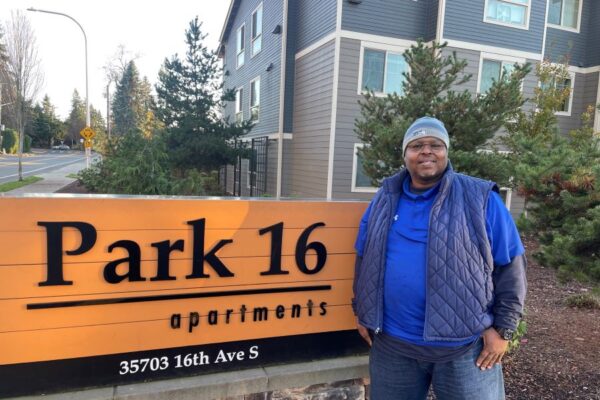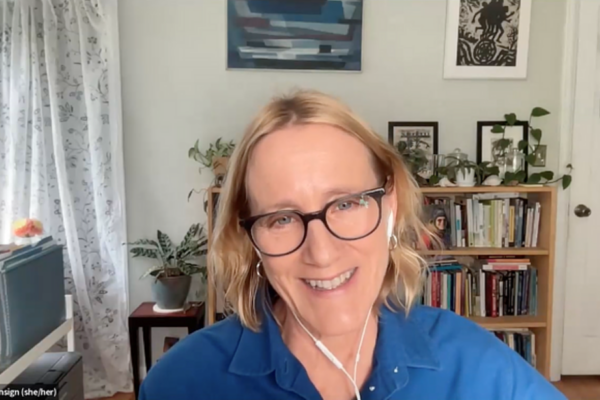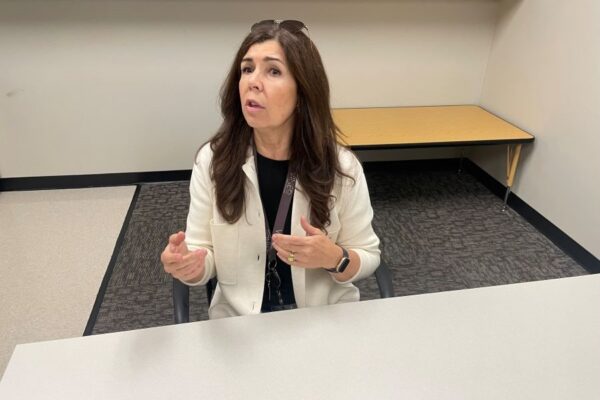No Place to Go
Our region has been rocked by the health and economic impacts of COVID-19 and our national reckoning with the history of racism that keeps too many Black, Indigenous and other people of color in poverty. The global pandemic has impacted everyone, and communities of color and those furthest from economic opportunity have been hit the hardest. This is particularly true for the homeless population. Now we face devasting wildfires that are making air quality unsafe, and leaders have called for people to stay indoors to avoid the smoke.
But what do you do when you have no place to go?
Our community was failing too many people experiencing homelessness before 2020. The Seattle/King County area declared homelessness an “emergency” in 2015. At the time, many of us hoped we would leverage disaster resources, bold policies and out-of-the-box thinking to fund shelter, scale housing programs and make it easier to build affordable housing. At the very least, we hoped for a more urgent and compassionate response for our unhoused neighbors.
Our regional leaders held countless meetings, engaged well-paid consultants and wrote dozens of plans. New programs were launched, more money was spent, better data was collected and some progress was made. But it wasn’t enough. Not nearly enough. Because as a community (including us at United Way), we never treated it like a true emergency. This was a choice. We often blame those experiencing homelessness for their situation. But it is our community, our leaders, our choices that allow people to go without a home.
We chose wrong and left too many people with no place to go.
Five years later, we face multiple emergencies while homelessness—especially unsheltered homelessness—has grown. In January 2020, more than 5,000 people were found to be unsheltered in King County—and that was before COVID-19. The pandemic has left us with boarded-up businesses and empty storefronts; more depressingly, it has left us with parks filled with tents, encampments alongside our highways and empty streets filled only by those with no place else to go.
It’s time to do better. Winter is coming. We need to make better choices so that our neighbors have a safe place to go.
This is what we are going to do:
1. Hold the Regional Authority accountable for an equitable and bold response.:
United Way has been a champion for a regional approach to the regional crisis of homelessness. We are glad that the Regional Homelessness Authority is (finally) taking shape and were pleased that elected officials recently voted to give more power to people who have experienced homelessness. We hope this entity doesn’t get stuck being a shell without vision, power, or influence, the way previous iterations have. In the coming months, we will be urging the Regional Homelessness Authority to use its influence to increase funding and leverage community resources to address this crisis at scale.
2. Prioritize Bringing People Inside:
For too long, we have pitted short- and long-term solutions to homelessness against each other. Some argue that we can’t fund more shelter because it takes away funding from housing solutions. That’s ridiculous—these are people’s lives. We can and should do both. One way to do that right now is to leverage vacant hotels across King County. We’ve already seen that hotels can be powerful places of respite for those experiencing homelessness–showers, beds, doors, kitchens. Why not do more? We haven’t heard a good excuse.
Pay for the hotels–thousands of them.
Put social workers, AmeriCorps members, returned Peace Corps volunteers, nurses and others to work in the hotels caring for our unhoused neighbors.
Move people in, help them stabilize.
3. VOTE:
We can choose to end homelessness, but local governments and philanthropy can’t do it alone. We need a federal response at the scale of the crisis. We must elect homeless champions at every level of government. We can start on November 3, 2020.
We need to get it together. We can choose to leave our homeless neighbors with no place to go or we can choose to do better. Let’s do better.





Comments